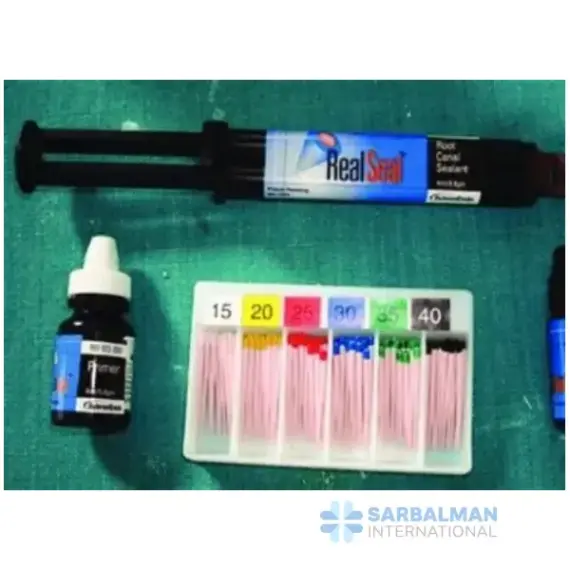Resin Sealer
Free!
Resin Sealer is a resin-based endodontic root canal sealer that flows easily, bonds reliably, and sets with low solubility to lock in a long-lasting seal. Use it with gutta-percha or compatible obturation points for cold or warm techniques. Radiopacity aids verification, and the handling saves chair time. Choose it when you want a tight, predictable seal that supports durable, infection-resistant endodontic outcomes.
Description
Resin Sealer is a professional endodontic root canal sealer formulated for durable, hermetic obturation. It flows into accessory canals and dentinal tubules, then sets to create a tight seal around the obturating core. The material is engineered for strong adhesion, low solubility, and clear radiopacity so clinicians can verify the fill on postoperative images.
Key features
• Resin-based chemistry for reliable adhesion to canal walls
• Smooth flow and thin film for complete canal wetting
• Low solubility to maintain the seal over time
• Radiopaque for easy visualization
• Consistent handling; compatible with cold lateral and warm vertical techniques
• Convenient delivery options, including automix syringes and intra-canal tips
Primary benefits
• Helps prevent microleakage and reinfection
• Saves chairside time with predictable handling
• Supports long-term endodontic success by resisting breakdown in oral fluids
Common uses and applications
• Permanent sealing of prepared canals with gutta-percha or resin-coated points
• Single-cone obturation in narrow or curved canals
• Retreatments where a robust coronal and apical seal is critical
How it compares
• Versus zinc-oxide–eugenol sealers: resin sealers typically offer lower solubility, stronger adhesion, and less risk of eugenol-related interactions with restorative resins.
• Versus calcium-silicate/bioceramic sealers: resin sealers provide fast, familiar handling and high radiopacity; bioceramics offer bioactivity but may set more slowly or require different techniques.
Quality considerations
• Formulated to deliver properties valued in root canal sealers such as appropriate flow, film thickness, and radiopacity. Selection should align with clinic protocols and regional regulatory requirements.
Ideal for
• General dentists and endodontists seeking a dependable, easy-handling sealer that supports predictable, radiographically verifiable obturation results.




